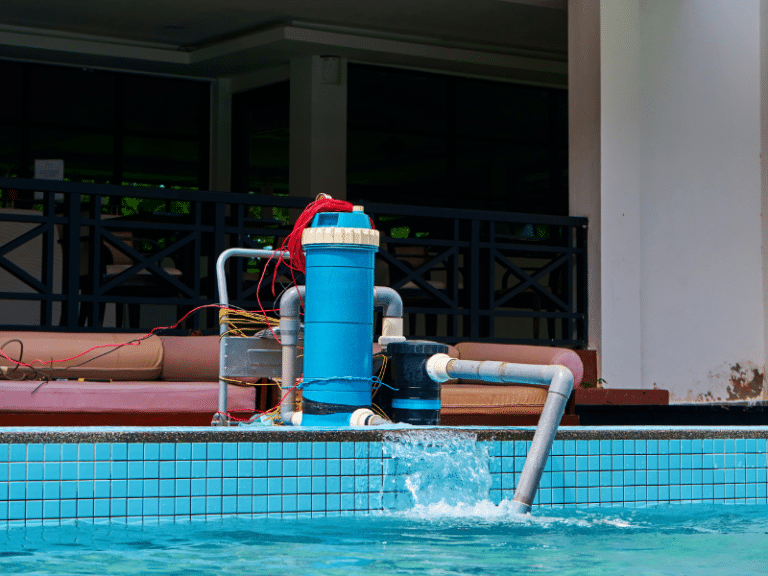Most common pool pump problems
The pool pump creates the right flow of water to circulate chemicals evenly throughout the pool so that it can effectively sanitize water. The pump also takes water from the pool to the heater, filter, and chlorinator so that it can be heated, filtered, and sanitized before entering the pool. An efficiently working pool pump is necessary for an enjoyable and safe poolside experience. However, like any other piece of equipment, your pool pump too can develop problems.
Many of the pool pump problems are minor and you can fix them on your own, but for others, you may need professional help. Here are some of the most common pool pump problems that we encounter:
Pump doesn’t turn on/keeps turning off
If the pool pump does not turn on or turns off quickly after starting, it is likely due to an electrical problem such as a blown fuse or loose connection. If the pump starts, but overheats and shuts down, it is likely due to an overloaded circuit. Make sure the fan is working properly and that the pump is receiving the right voltage. Another electrical issue that can cause this problem is a worn capacitor.
Pump making a loud noise
The most common reasons for strange noises from a pool pump include a blocked impeller, blocked lines, unsecured mountings, or faulty bearings and seals. These problems can cause different noises such as loud rattling, gurgling, grinding, buzzing, vibrations, and high-pitched noises. In case the pump is making a rattling noise, check if it is mounted properly on its base. It is best to place it on a rubber mat to prevent it from shaking and rattling.
A gurgling noise from your pump means it is running dry or taking in too much air. Pool water should be at least halfway to the skimmer’s door. If not, the pump will take in air and emit a gurgling noise. A lack of sufficient water can cause the pump to burn out. Whining noise is often a result of bad bearings.
Pump leaks
Leaks in the pool pump are a prevalent issue among pool owners, making it one of the top pool pump problems to address for optimal performance and water management. Leaks are a sign that something is amiss. Constant leaks from a pump could result from various factors such as broken seals, pump drain plugs, pump housing, improper fittings, or the lid.
The impellor housing ‘o’ rings, shaft seals, and thread sealants can deteriorate over time and cause leaks. Check all the seals and replace the ones that are damaged to plug the leaks. If you cannot locate the exact source of the leak, call in a professional.
Pump won’t move the water
If the pool pump does not pull water, you should check the pump baskets, skimmer, and filter for a build-up of debris. Sometimes, the impeller can also become clogged with debris, so do not forget to check that as well. Low water levels due to long spells of hot weather can reduce or stop the flow of water through the system. An air leak in the suction line can also cause this problem. When there is air present, the pump will pull air instead of water.
Pump is overheating
If the pump is too hot to touch, it could be due to different reasons. Sometimes, when the pump is clogged for a long period of time, it will suck air and not water, which can cause the impeller to rotate very fast. This, in turn, can cause the pump to burn out. If the bearings are worn out, it can cause excessive friction that can lead to overheating. Worn parts should be replaced at the earliest to prevent any major damage.
By promptly addressing and resolving pool pump problems, you can ensure uninterrupted circulation, efficient filtration, and a properly maintained pool for a delightful swimming experience. Don’t let pool pump problems dampen your enjoyment. Take action to troubleshoot and fix issues to keep your pool water clean, clear, and inviting throughout the seasons.
Are you looking for a qualified technician to check your pool pump and properly diagnose the problem? Get in touch with our team now.

